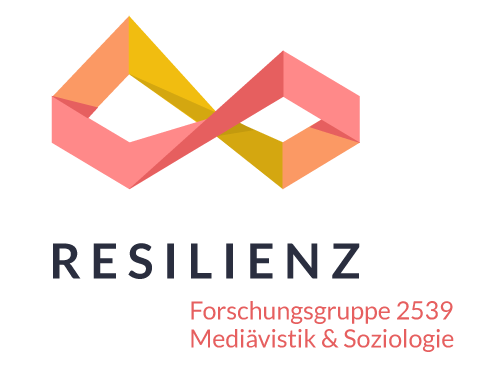Der Resilienzbegriff im Forschungskontext
Unter dem Begriff „Resilienz“ werden in diversen Disziplinen in der jüngsten Zeit Forschungsansätze (besonders aus der Sozialökologie und der Entwicklungspsychologie) rezipiert, die auf einen spezifischen Typus sozialer Prozesse abstellen: Untersucht werden Strategien, Ressourcen und Bedingungen, die für individuelle und/oder soziale ‚Systeme‘ im Falle externer Bedrohungen (wie Naturkatastrophen oder soziale Schädigungen) ein Überleben bzw. eine Bestandserhaltung potentiell sicherstellen können. Seine Konturen gewinnt der Rekurs auf das Resilienzkonzept durch den kontrastiven Bezug vor allem auf Phänomene von Krise, Bedrohung, Vulnerabilität und Risiko. Als Gegenkonzept zu diesen wird mit Resilienz das Beharrungs- und Widerstandspotential sozialer und gesellschaftlicher Strukturen und Einheiten gegen außergewöhnliche, disruptive soziale Veränderungsprozesse thematisiert.
In Anlehnung an eine vom Stockholm Resilience Center erarbeitete Definition wird das Vermögen, situationsadäquate soziale, kulturelle und politische Handlungsoptionen zu entwickeln, mit dem Begriff „Resilienz“ bezeichnet (zur Definition des Stockholm Resilience Center). Dabei versteht die Forschungsgruppe die Fähigkeit von sozialen Einheiten, sich innerhalb eines Status quo definierter kritischer Grenzen anzupassen, als Bewältigungspotential. Unter dem Anpassungspotential sozialer Einheiten fasst sie Veränderungen, die sich innerhalb bereits absehbarer Entwicklungspfade bewegen. Von Transformationspotentialspricht sie dann, wenn bisherige kritische Grenzen überschritten, Strukturen umgebaut und neue Entwicklungspfade eröffnet werden. Die Untersuchung, wie diese drei Facetten von Resilienz ineinandergreifen und welche Wechselwirkungen zwischen ihnen bestehen, ist ihr zentrales Anliegen. Resilienz definiert sie entsprechend als Ensemble dynamischer Prozesse von Bewältigung, Anpassung und Transformation angesichts bestandsgefährdender Herausforderungen, die sich durch flexible und kreative Rekonfiguration tradierter Elemente sowie durch die Entwicklung neuartiger Deutungs- und Handlungsmuster auszeichnen.
Zentrale Zielsetzung der Forschungsgruppe
Übergeordnetes Ziel der Forschungsgruppe ist die Erarbeitung und Weiterentwicklung eines Resilienzansatzes für die Geschichts- und Sozialwissenschaften zur Analyse nichtlinearer sozio-historischer Mehrebenenprozesse, die durch eine enge Verknüpfung von Phänomenen der Kontinuität und der Diskontinuität charakterisiert sind. Die Forschungsgruppe lotet die Transformationserfordernisse bei der Übertragung des Resilienzansatzes insbesondere aus dem sozial-ökologischen Diskurs ebenso aus wie sie die sich daraus ergebenden Potentiale für die sozio-historische Forschung im Allgemeinen und der beteiligten historischen Disziplinen zur Erforschung des 13.–17. Jahrhunderts, der Rechtsgeschichte sowie der Soziologie im Besonderen identifizieren wird.
Arbeitsmethodik der Forschungsgruppe
Das Resilienzkonzept wird hinsichtlich seines analytischen Potentials mit anderen sozio-historischen Prozessbegriffen verglichen, seine Tragfähigkeit und sein konzeptioneller Mehrwert werden empirisch geprüft. Die Forschungsgruppe beachtet dabei die historisch unterschiedlichen Zeit- und Bedrohungsvorstellungen ebenso wie die jeweiligen Vorstellungen menschlicher Handlungspotentiale, wofür sie projektspezifisch unterschiedliche Methoden nutzt: sequenzanalytische Verfahren der qualitativen Sozialforschung, textvergleichende Ansätze der historischen Hermeneutik und Semantik, Untersuchung historischer Netzwerke.
Die Forschungsgruppe in ihrer ersten Förderphase
In der ersten Förderphase (01.07.2016–30.06.2019) wurde der Frage nachgegangen, ob die empirischen und konzeptionellen Erträge der Analysen historischer Konstellationen zugleich für eine historische wie gegenwartsbezogene Typen- und Theoriebildung fruchtbar gemacht werden können. In der systematischen Verzahnung von mediävistischer Forschung mit wissenssoziologisch angeleiteter soziologischer Theoriebildung sollten historisch-empirische Typologien von Resilienzprozessen, Resilienzressourcen, Resilienzstrategien und Resilienzdispositionen entwickelt und diese Konzepte wiederum für die geistes- und sozialwissenschaftliche Forschung nutzbar gemacht werden. Mit ihrem Zuschnitt ging es der Forschungsgruppe in der ersten Förderphase insbesondere darum, die Bedeutung unterschiedlicher Formen gesellschaftlicher Deutungsmuster und Selbstbeschreibungen für den Ablauf und die Ergebnisse von Resilienzprozessen zu untersuchen. Dies wurde durch eine dreifache analytische Perspektivierung ermöglicht, die gesellschaftliche Umbruchsituationen in sozio-politischer, sozio-ökonomischer und sozio-kultureller Hinsicht in den Blick nahm.
An der Forschungsarbeit beteiligten sich in der ersten Förderphase sechs Projekte aus der Soziologie und der Mediävistik, vertreten durch die Fächer Ältere Deutsche Philologie, Rechtsgeschichte und Mittelalterliche Geschichte:
- Projekt 1 „Aschkenasische Juden im späten Mittelalter: Reaktion auf Verfolgung, Entrechtung und Vertreibung“
- Projekt 2 „Resilienz in Süditalien unter den frühen Anjouherrschern (1266–1309)“
- Projekt 3 „Theorie der Resilienz“
- Projekt 4 „Stadtkultur und Resilienz. Das Fastnachtspiel auf Nürnbergs Bühne vor und nach der Reformation“
- Projekt 5 „Rechtsrezeption und Resilienz. Das Kreditrecht des Ius Commune“
- Projekt 6 „Eine resiliente Stadt: Die Republik Venedig im 15. Jahrhundert“
| 03.11.2016 | Vortrag anlässlich der Einrichtung der Forschungsgruppe: „Beharrungskraft und Anpassungsleistungen wirtschaftlicher Teilsysteme angesichts schockartiger Umbrüche oder: Von der Resilienz zum Resilienz-Management“ (Markus A. Denzel, Leipzig), Trier |
| 09.–10.12.2016 | 1. Klausurtagung der Forschungsgruppe, Otzenhausen |
| 27.–28.10.2017 | 2. Klausurtagung der Forschungsgruppe, Otzenhausen |
| 12.–15.03.2018 | Internationale Konferenz der Forschungsgruppe: „Strategies, Dispositions and Resources of Social Resilience. A Dialogue between Medieval History and Sociology“, Trier (zum Konferenzbericht von Bock, zum Konferenzbericht von Schumacher). |
| 16.–17.08.2018 | 3. Klausurtagung der Forschungsgruppe, Kyllburg |
Weitere Informationen zum Forschungsprogramm und den Projekten der ersten Förderphase.
Die Forschungsgruppe in ihrer zweiten Förderphase
In der zweiten Förderphase (01.11.2019–30.10.2022) zielt die Forschungsgruppe im Dialog zwischen historischen Disziplinen und Soziologie auf die Erarbeitung und Weiterentwicklung eines Resilienzkonzeptes, das die Analyse nicht-linearer und sich auf mehreren Ebenen vollziehender sozio-historischer Prozesse ermöglicht, die durch eine enge Verknüpfung von Phänomenen der Kontinuität und Diskontinuität charakterisiert sind. Mit diesem innovativen Ansatz, der Resilienz nicht essentialistisch, sondern als Prozessheuristik versteht, knüpft die Forschungsgruppe an die Erkenntnisse und Erträge der ersten Förderphase an, kontinuiert ihre Arbeit mit Blick auf die entwickelten Konzepte, arbeitet diese weiter aus und ergänzt zugleich ihre theoretische wie empirische Basis. Im Mittelpunkt der Forschung der zweiten Förderphase stehen insbesondere die Analyse des Zusammenhangs von Phänomenen der Kontinuität und der Diskontinuität in sozio-historischen Prozessen sowie die Deutung und Bedeutung disruptiver Phänomene im Rahmen sozio-historischer Umbruchsprozesse.
Entsprechend der Schwerpunktsetzung der Forschungsgruppe in der zweiten Förderphase ergibt sich eine angepasste Zusammenstellung der Projekte ebenso wie neue Themenschwerpunkte in den fortgesetzten Projekten:
- Projekt 1 „Aschkenasische Juden im späten Mittelalter: Bewältigungs-, Anpassungs- und Transformationspotentiale regionaler Netzwerke“
- Projekt 2 „Resilienz in Süditalien unter den frühen angiovinischen Herrschern (1266– 1309)“
- Projekt 3 „Theorie der Resilienz“
- Projekt 4 „Resilienzprozesse angesichts disruptiver Phänomene. Zur gesellschaftlichen Wahrnehmung von Sicherheitspolitiken und terroristischen Bedrohungen“
- Projekt 5 „Rechtsrezeption und Resilienz. Laiengerichtsbarkeit in Deutschland im 15. und 16. Jahrhundert“
- Projekt 6 „Kriminaljustiz im Westen des Reiches (15.–17. Jahrhundert). Resilienzprozesse am Beispiel von Hexerei- und Unzuchtsdelikten“
Weitere Informationen zum Forschungsprogramm und den Projekten der zweiten Förderphase.
